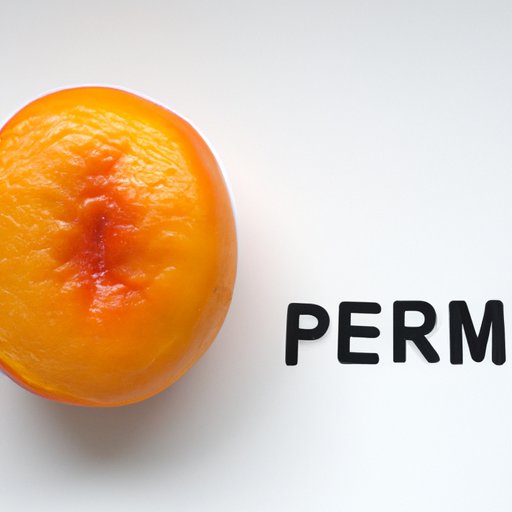
Introduction
Hernia is a condition where an organ or fatty tissue protrudes through a weak spot in the abdominal wall or groin area. It can cause discomfort, pain, and other complications if not managed properly. In this comprehensive guide, we will provide tips and insights on how to manage hernia pain and symptoms, ensure a nutritious diet for hernia, treatment options, and other essential information to help people who suffer from hernia get the support they need.
10 Tips to Manage Hernia Pain
There are many non-invasive techniques that can help alleviate pain and discomfort associated with hernia. Here are a few examples:
- Gentle exercises such as walking, cycling, and low-impact aerobics can help strengthen abdominal muscles and improve circulation.
- Dietary changes such as avoiding spicy, acidic, fatty, and processed foods can help prevent indigestion, acid reflux, and other digestive issues that can aggravate hernia pain.
- Weight management can help reduce the pressure on the abdominal wall, which can exacerbate hernia pain. A balanced diet and regular exercise can help individuals maintain a healthy weight.
- Mindfulness practices such as yoga, meditation, and deep breathing can help reduce stress, anxiety, and muscle tension that can contribute to hernia pain.
It’s essential to consult with a healthcare provider before starting any new exercise or diet regimen, as some activities may be unsuitable or may cause further strain or injury.
The Double Benefit of Hernia Diet
Eating a balanced and nutritious diet rich in protein, vitamins, and minerals can not only prevent hernia but also aid in recovery and post-surgical healing. Here are a few examples of foods and supplements that can help with hernia:
- Protein-rich foods such as tofu, lentils, quinoa, and beans can help repair and regenerate tissues, including the abdominal wall.
- Vitamin C-rich foods and supplements such as oranges, bell peppers, broccoli, and strawberries can help boost collagen production, which is essential in wound healing and tissue repair.
- Vitamin D from sources such as fortified dairy products, salmon, and mushrooms can help improve bone health and reduce inflammation, which can contribute to hernia pain.
- Vitamin A-rich foods such as sweet potatoes, carrots, leafy greens, and mangoes can help improve immune function and reduce inflammation in the body.
- Zinc from sources such as oysters, beef, eggs, and nuts can help with tissue repair and immune function, which is crucial for hernia healing and prevention.
It’s important to consult with a healthcare provider before making any significant dietary changes, especially if you have other medical conditions or are taking other medications.
Hernia Treatment Options
If non-invasive techniques fail to alleviate hernia symptoms, surgical and non-surgical options can be considered. Here are a few examples of treatment options:
- Watchful waiting: For some people, hernia may not cause significant pain or discomfort, and the risk of complications with surgery may outweigh the benefits. In such cases, the healthcare provider may monitor the hernia regularly and advise on lifestyle changes and self-care practices.
- Surgery: There are various surgical options for hernia repair, such as laparoscopic surgery, open surgery, and robotic-assisted surgery. Each approach has its benefits and risks, and the healthcare provider can recommend the most suitable option based on the individual’s medical history, hernia location, and other factors.
- Natural remedies: Some people may prefer natural remedies such as hydrotherapy, homeopathy, and acupuncture to manage hernia pain and discomfort. While there is limited scientific evidence to support these methods, some people may find them beneficial.
It’s crucial to weigh the pros and cons of each approach and consult with a healthcare provider before deciding on a course of action.
Questions to Ask Your Doctor at Hernia Diagnosis
When diagnosed with hernia, it’s essential to fully understand the condition, its symptoms, and the treatment options available. Here are a few questions to ask your healthcare provider during the consultation:
- What type of hernia do I have, and where is it located?
- What are the symptoms of hernia, and how can I manage them?
- What are my options for hernia treatment, and what are the pros and cons of each option?
- What are the potential complications of hernia, and what can I do to prevent them?
- What are the risks and benefits of surgical and non-surgical hernia repair?
By taking an active role in asking questions and seeking information, individuals can make informed decisions about their hernia treatment and care.
The Psychological Effects of Hernia and How to Cope
Hernia can cause physical discomfort and pain, but it can also have emotional and mental impacts on an individual’s quality of life. Here are a few coping strategies:
- Self-care techniques such as taking warm baths, getting enough rest, and practicing relaxation techniques can help reduce stress and promote relaxation.
- Peer support groups and online communities can provide a safe and supportive space for individuals to share their experiences and receive emotional support.
- Meditation techniques such as mindfulness meditation can help individuals develop greater awareness and acceptance of their hernia symptoms, which can promote a sense of emotional well-being.
It’s essential to seek support from friends, family, and healthcare providers when coping with hernia, as it can be a challenging and isolating experience.
Conclusion
Hernia can be a discomforting and potentially life-threatening condition if not managed properly. By following the tips and insights provided in this article, individuals can learn how to manage hernia symptoms and pain, ensure a nutritious diet for hernia, explore treatment options, ask questions during consultation, and cope with the psychological effects of hernia. By taking an active role in their care and seeking professional help when necessary, individuals can improve their chances of successful hernia healing and recovery.




